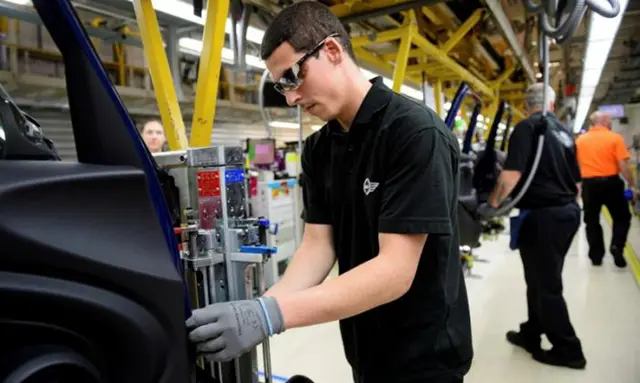The bounce back in Britain's economy from the initial shock of the Brexit vote has expanded to the country's recruitment and housing markets, according to two surveys which previously painted a bleak outlook.
The Recruitment and Employment Confederation - which last month said hiring was in "dramatic freefall" - said firms increased permanent staff for the first time in three months, and were also spending more on temporary workers.
The Royal Institution of Chartered Surveyors said its monthly house price index jumped to +12 in August from July's three-year low of +5, the first rise in six months, though still one of the lowest readings in the past year and a half.
"There are clear signs that the housing market is settling down after the initial surprise of the outcome to the EU referendum," RICS chief economist Simon Rubinsohn said.
The Bank of England's decision to cut interest rates in August for the first since 2009 probably contributed to the brighter mood, Rubinsohn added.
The recovery in the RICS and REC surveys follows a pattern set by surveys of the services and manufacturing sectors which plunged in July, when Britain was plunged into political chaos by the Brexit vote, before rising sharply in August.
Housing and retail firms also gave confident outlooks. Property website Zooplasaid annual earnings would hit the top end of forecasts, confounding predictions that Brexit would freeze the market. Housebuilders Barrattand Redrowhave also sounded upbeat.
Dixons Carphone, Britain's biggest electricals and mobile phone retailer, reported better-than-expected sales and said it had not seen no Brexit impact on demand.
Slowdown Still Expected
Some economists have pulled back from forecasts of outright recession made in the wake of the Brexit vote, though almost all - including the BoE - still expect a sharp slowdown.
BoE Governor Mark Carney said on Wednesday that economic growth seemed to be slowing to about half its pace from before the referendum, a slightly less severe hit than the Bank has previously predicted.
REC chief executive Kevin Green said it was too soon to draw long-term conclusions about the health of the job market.
"The fact that vacancy growth has softened is concerning, suggesting that hiring could be volatile over the coming months," he said.
Green also called on the government to allow EU workers to continue to come to Britain easily to work once it leaves the bloc, a position which is opposed by many supporters of Brexit who want to stem the flow of EU migrants in Britain.
"Developing an immigration policy which will allow employers to access enough candidates for the jobs available is vital," Green said
RICS said that for the first time since April its members expected house prices to rise over the coming three months, and forecast a 1.1 percent increase in prices over the next year.
Sales volumes - which had previously dropped sharply - were now stabilizing, RICS added.
Not all analysts were positive about the outlook.
"Looking ahead, a renewed squeeze on households' real incomes, largely due to a rebound in inflation, likely will put renewed downward pressure on demand. As such, we doubt that house prices will return to a smooth upward trajectory," Pantheon Macroeconomics's Samuel Tombs said.
(REUTERS)
 简体中文
简体中文

